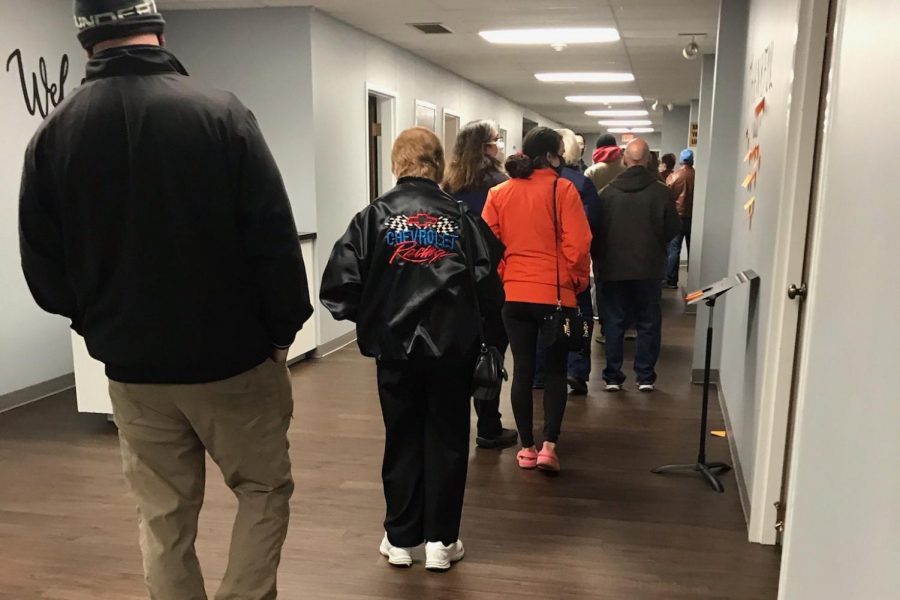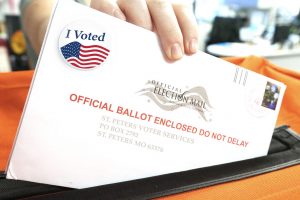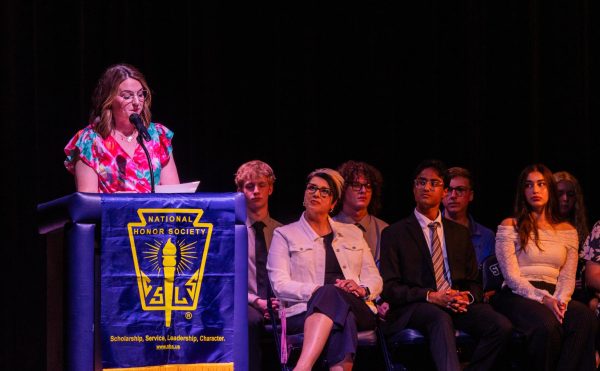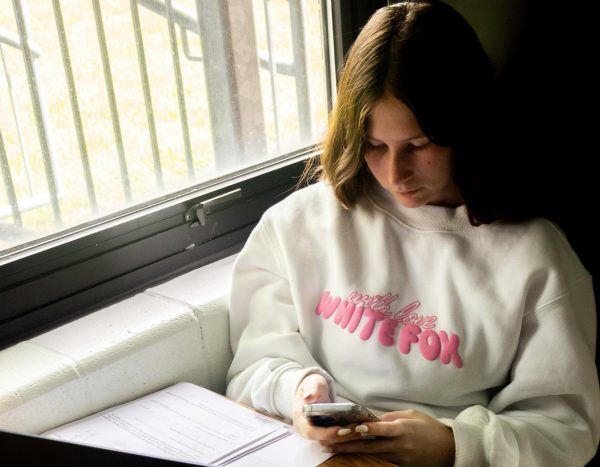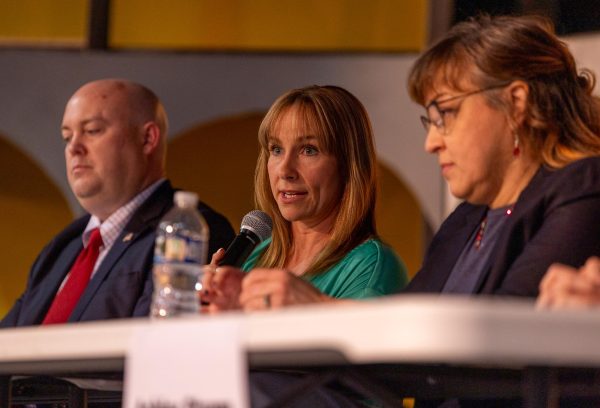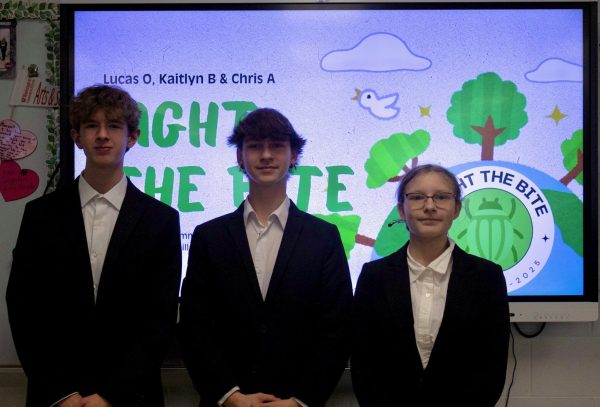A Run-Through of Missouri Elections
A debriefing of the elections and candidates nominated throughout Missouri
Voters line up in Missouri to fill out election ballots. As elections brought about a rise in tension, people were eager to express their opinions and rights to voting.
PRESIDENTIAL ELECTION:
Although Joe Biden has been called as the official president starting in January of 2021, 56.9% of voters, as reported by The Associated Press, chose incumbent Donald Trump, marking Missouri as a Republican state for the sixth presidential election in a row since 2000. His opponents, listed in order of votes received from highest to lowest, include, since the elected president, Joe Biden with the Democratic Party, Jo Jorgensen with the Libertarian Party, Howie Hawkins with the Green Party, and Don Blankenship with the Constitution Party. Missouri’s 10 electoral votes will be cast on December 14 in the Electoral College.
GOVERNOR ELECTION:
According to reports by The Associated Press, incumbent Republican Mike Parson won the governor seat for a second term (first elected in 2018) by a 57.2% majority. Other candidates included Democrat Nicole Galloway, Libertarian Rik Combs, and Green Party Jerome Bauer.
Parson’s focus is on growing the economy and strengthening the infrastructure, calling to move “Missouri forward” with four categories into which he hopes to supply support, namely, Stronger Communities, Workforce and Education, Infrastructure, and Government Reform.
Galloway promised to be “fighting for Missouri’s families” as posted on her campaign website. She hoped to expand access to healthcare through lowered costs, as well as a multitude of other policies that worked to help and assist the local communities and the people within.
Combs had moved to cut taxes and spending as well as extending to protect private property. His focus was on a more limited government to allow Missouri citizens to access responsibility and initiative.
Bauer stated his opposition to corporation power abuse and stated his support of workplace democracy and social liberty and justice.
US HOUSE OF REPRESENTATIVES:
Congressional District elections in Saint Louis, Missouri proved historic as the first black congresswoman, Cori Bush, was elected in District 1. Her opponents were Anthony Rogers (Republican) and Alex Furman (Libertarian).
In District 2, Ann Wagner was elected as a Republican nominee against Jill Schupp (Democratic) and Martin Schulte (Libertarian).
Blaine Luetkemeyer (Republican) took the top in District 3 with a vote percentage of 69.4% against Megan Rezabek (Democratic) and Leonard Steinman (Libertarian).
Similarly, District 4 saw a large Republican majority as Vicky Hartzler won the election against Lindsey Simmons (Democratic) and Steven Koonse (Libertarian).
One of the two Democratic districts, District 5 elected Emanuel Cleaver over candidates Ryan Derks (Republican) and Robin Dominick (Libertarian).
Sam Graves won District 6 for the Republican Party against Gena Ross (Democratic) and Jim Higgins (Libertarian).
Another win for the Republican Party, Billy Long was elected over District 7 against Teresa Montseny (Democratic) and Kevin Craig (Libertarian).
And finally, District 8 contributed another Republican win with Jason Smith’s win against Kathy Ellis (Democratic) and Tom Schmitz (Libertarian).
Overall, the Republican Party won 6 seats in the House of Representatives, and the Democratic Party won 2, leaving all other parties with 0 votes.
US SENATE:
There were no elections for the US Senate in Missouri. Nationally, the Republican Party currently holds 48 seats, while the Democratic Party has 46, and other parties hold 2. The Associated Press has called 31 of the 35 seats.
BALLOT MEASURES:
Missouri voted on two ballot measures, each with an opposite outcome. The first measure was an amendment to limit the terms of the governor, lieutenant governor, secretary of state, state auditor, attorney general, and state treasurer to only two terms in office. This amendment had a 52% negative vote and a 48% positive vote, resulting in the hindering of this proposal.
The second ballot measure was to Missouri Amendment 3, voted yes to change the redistricting system, allowing a different scale of community=ities to voice their opinions more accurately instead of being swayed by a neighboring population or city within their district. The amendment was sponsored by Senator Dan Hegeman (Republican) alongside the Fair Missouri campaign, and opposed by the Clean Missouri campaign. 51% of votes were in the positive, leaving only 49% in the negative. Of the supporters, the majority tended to also be associated with the Republican Party while the Democratic Party presided over the negative votes.
Your donation will support the student journalists of Francis Howell Central High School. Your contribution will allow us to purchase equipment and cover our annual website hosting costs. FHCToday.com and our subsequent publications are dedicated to the students by the students. We hope you consider donating to allow us to continue our mission of a connected and well-informed student body.



